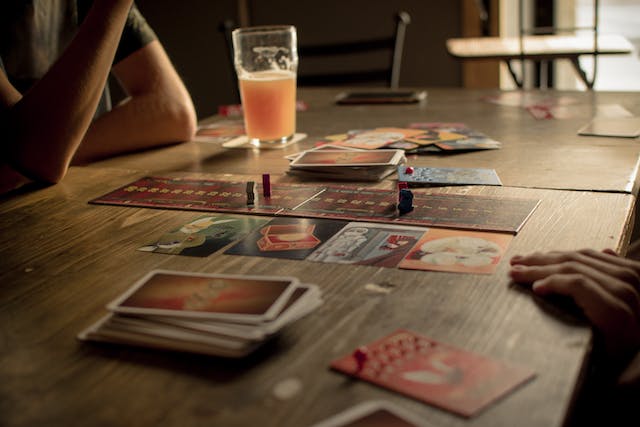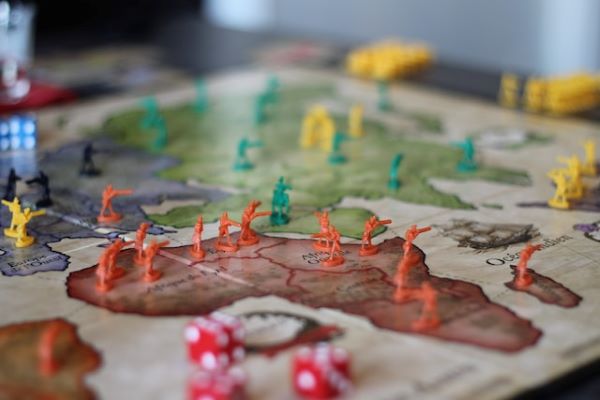Dungeons & Dragons (D&D), a beloved tabletop role-playing game, and business, may seem like two worlds apart. However, they share commonalities when it comes to achieving success. Navigating Dungeons & Dragons D&D or business involves journeys marked with similar frameworks. Namely, the four pillars of business: People, Customers, Finances, and Systems & Processes. In this article, we explore how these four elements apply to both realms, highlighting their similarities and differences.
People: The Heart of the Endeavor
People are the foundation of both D&D groups and businesses. In D&D, the party consists of diverse characters with unique skills and personalities, each contributing to the team’s success. A balanced group, featuring warriors, mages, rogues, and healers, mirrors a well-rounded team in business. Everyone has a role to play, and cooperation is key.
In business, your employees are your most valuable assets. A strong, motivated team can overcome almost any challenge. Similarly, a cohesive D&D party can conquer dungeons filled with monsters and traps. Furthermore, effective leadership and communication are crucial for both groups.
Customers: Understanding Needs and Desires
When playing D&D, adventurers interact with NPCs (non-player characters), which are essentially the game’s customers. The party must decipher their needs, wants, and motivations to complete quests, obtain rewards, and progress through the storyline. Similarly, businesses must understand their customers’ needs, preferences, and expectations to provide products or services that satisfy them.
In both cases, empathy and the ability to listen are invaluable. Just as a D&D party must discover what the quest giver seeks, a business should continually gather feedback to improve its offerings and maintain customer loyalty.

Finances: Managing Resources Wisely
Managing finances is a critical aspect of navigating Dungeons & Dragons and business. In D&D, the party must carefully allocate their resources, such as gold, equipment, and consumables, to optimize their chances of success. You don’t want to run out of torches halfway into the dungeon! Businesses must do the same by wisely allocating funds, setting budgets, and making investments. While it may seem obvious, many businesses, both large and small, have collapsed through lack of cash.
While the context is different, the principles are similar. Both endeavors require financial planning and prudent decision-making. Overspending, in either D&D or business, can lead to dire consequences, so it’s essential to strike a balance between expenses and income.
Systems & Processes: The Backbone of Success
Systems and processes are essential to ensure everything runs smoothly in D&D and business. In D&D, this might involve establishing a turn order in combat, inventory management, or skill checks. Essentially, they form the rules of the game, keeping the world consistent and gameplay enjoyable. In business, it’s about creating workflows, standard operating procedures, and automating repetitive tasks.
The goal in both cases is efficiency and consistency. A streamlined process in D&D ensures combat encounters flow seamlessly, just as efficient business processes enhance productivity and customer service. Reducing friction and eliminating bottlenecks leads to smoother operations in both D&D parties and business organizations.
Summary of Key Similarities and Differences
Here are a few of the key similarities and differences associated with each of the pillars:
- Teamwork and Leadership: Both D&D parties and businesses require effective leadership and teamwork. However, in D&D, characters may have different alignment, motivation, and loyalty, while in business, employees are typically united by a shared goal and compensation.
- Customer Interaction: Understanding customer needs and desires is vital in both D&D and business. However, D&D characters often deal with a single quest giver at a time, while businesses must cater to a broader customer base.
- Finances: Managing finances is critical in both contexts. In D&D, the party shares a common pool of resources, whereas businesses have separate budgets and income streams.
- Systems & Processes: Efficient systems and processes are essential for both D&D parties and businesses. However, in D&D, the framework is set by the game rules, while businesses have more flexibility in designing their processes.
Final Thoughts on Navigating Dungeons & Dragons and Business
While the settings and goals of Dungeons & Dragons and business might differ significantly, the core business framework of People, Customers, Finances, and Systems & Processes play integral roles in both realms. These elements are foundational to achieving success, whether you’re exploring dungeons and battling monsters or navigating the complex world of commerce. By recognizing these similarities and differences, you can apply the lessons learned in one realm to enhance your performance in the other, creating a well-rounded approach to success in both D&D and business.
To my mind navigating dungeons and dragons has huge potential in helping teams refine and craft their soft business skills. What do you think?



